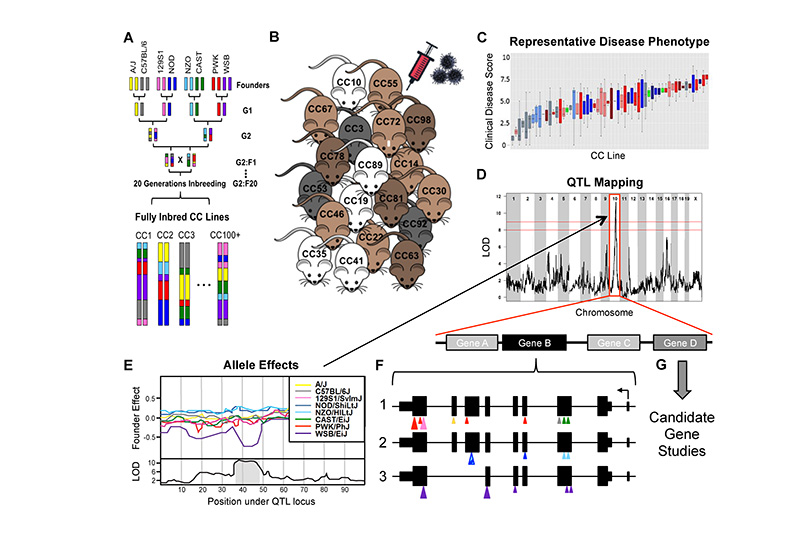
It is well established that a person’s genetics influence their susceptibility to infection and severity of clinical disease. This was especially apparent during the COVID-19 pandemic, where individuals of similar age and health status would show widely disparate levels of disease severity following infection with SARS-CoV-2. For chikungunya virus (CHIKV), neurological disease manifestations during the two largest CHIKV outbreaks differed based on geographic location, despite being caused by phylogenetically similar CHIKV strains, suggesting that host genetics play a role in neurological disease presentation. To evaluate how host genetics influence the course of disease, our lab employs the Collaborative Cross (CC), a systems genetics mouse reference population that mimics the breadth of genetic diversity seen across the human population. CC mice have been used to identify genetic loci mediating responses for multiple pathogens, and our lab uses this resource to ask a number of scientific questions, including, 1) What host factors mediate CHIKV dissemination and neuroinvasion? and 2) What genes mediate susceptibility and disease severity across a wide range of infectious diseases?
